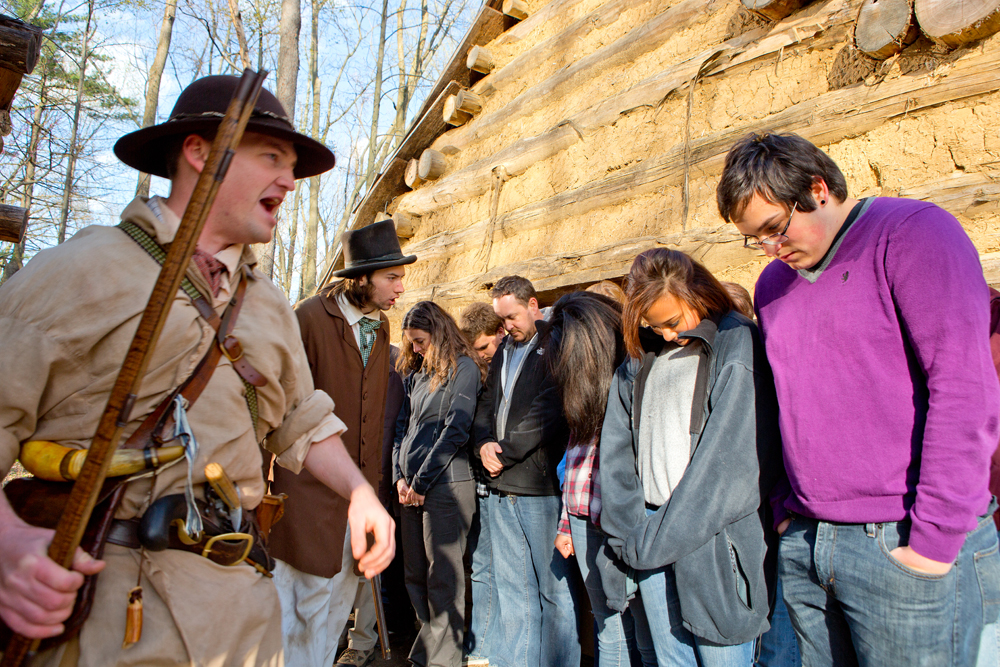
By Nancy Edwards
Conner Prairie’s long-running reenactment of the lives of runaway slaves on the Underground Railroad, “Follow the North Star,” gives guests a clear picture of the danger African-Americans faced 150 years ago.
Today, the program also teachers visitors that slavery is far from over.
Human trafficking affects approximately 27 million people in the world today, a $32 billion a year industry. Why are these numbers so staggering?
“Girls are sold by parents who do not have enough money; these girls are being sold into prostitution,” said Jenny Sherrill, a historic interpreter with Conner Prairie Interactive History Museum in Fishers.
Most of us are not surprised that the industry is thriving overseas, especially in Asia. Yet human trafficking is also very real in the Midwest, including central Indiana.
“People will bring in children to where the Super Bowl is going to be held that year or other big sporting events to provide entertainment (to guests),” Sherrill said. “We think ‘Oh, people go to Hong Kong (for child sex trafficking), but it’s not just there (that it exists).”
Teenage girls in the nation may also unwittingly be trapped into the trade when they run away from their own abusive families, according to Sherrill. When the girls have nowhere else to go, they become easy prey for anyone promising them a safer place to live.
“Girls abused tend to fall into other people who tend to abuse them,” she said.
Public knowledge of the industry has increased widely for the past three to four years, according to Sherrill, who talks with guests after they go through the interactive North Star experience.
“When I asked ‘Is there slavery today?’ (before), people would say ‘no, no.’ People are a lot more aware now,” she said.
When participants go through the experience of North Star, which has been ongoing since 1998, they learn that women slaves were referred to as “breeders,” and “cows.”
Sadly, today, young girls sold to the human trafficking industry are not treated any better than they were less than a few centuries ago.
Yet a safe place in Ohio called Grace Haven helps those former victims. Located in Columbus, the home offers education, counseling, mentoring and life skills training (gracehaven.me).
Sherrill, in addition to other employees and volunteers at Conner Prairie, hope to challenge guests to pay attention to these tragedies that are often overlooked by those who do not agree but do not feel comfortable getting involved, in much the same way that African-American slavery was treated.



